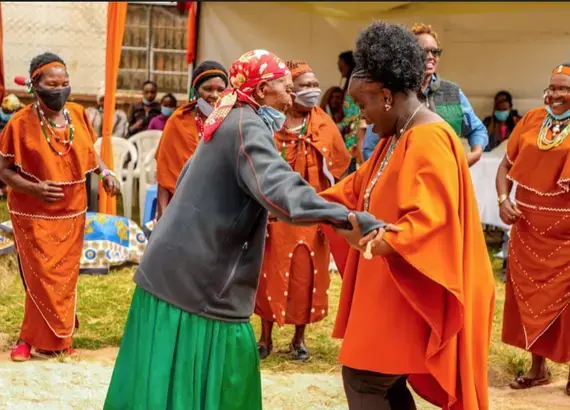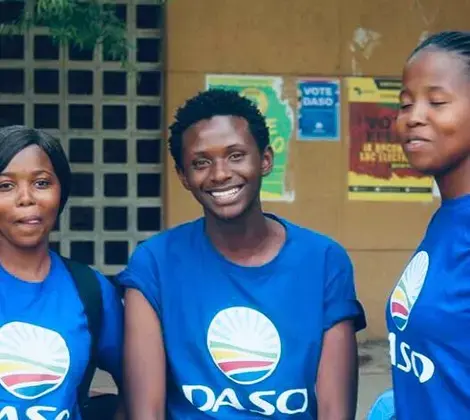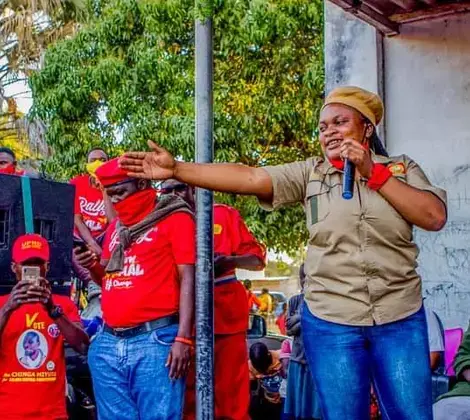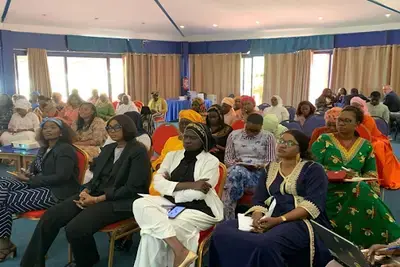
Success Story
Pathways to Youth Political Engagement: Chronicling Journeys of Three Youth Party Activists in Party Processes

. As the 2020 leadership institute cohort draws to a close, NDI spoke with some of the participants on their experiences in politics and how their political parties have helped them in their political aspirations.
For many young people, elections are an entry point to engage with political parties and politics in general. Anne Kiai of Kenya's Jubilee Party (JP) and Obakeng Kamela of South Africa's Democratic Alliance (DA) became members of their parties during election periods. As voters in Kenya's 2007 national elections and South Africa's 2016 municipal elections, both saw opportunities to address issues in their communities as party members, including promoting peace and cohesion among community members and improving service delivery. Similarly, Muumba Kashoti was motivated to join Zambia's United Party for National Development (UPND) to raise awareness on issues related to gender equality, including providing young girls with access to education through policies to prevent teenage pregnancy and discourage early childhood marriage.
Before joining a political party, I did not have the capacity to speak on issues that really affected me and other girls ... Being a member has allowed me to speak on issues that are affecting people around the communities, and the country at large.
Muumba Kashoti, UPND
While reflecting on their political journeys as members of political parties, Obakeng, Muumba, and Anne noted how training and mentorship by their parties have built their capacities to participate. Obakeng, for his experience as a student activist and a deputy branch chairperson for the DA, noted that the party provided him with logistical assistance as he prepared to run in student leadership elections and helped him frame his platform. In the future, he hopes to join the DA's Young Leaders Program to harness his leadership potential further. In Zambia, Muumba stated that the UPND provided capacity-building training for its young members through workshops and recruiting young people into their structures from the district level up to the national level. Through these trainings, Muumba has acquired community outreach and problem-solving skills to manage conflict with those from different backgrounds.
For Anne in Kenya, Mentorship opportunities with the JP have equipped her with practical tools for financing campaigns and developing communications and branding. Most notably, she's also learned how to mobilize around a cause. Since joining the JP, Anne has brought together young women between the ages of 18 and 35 from different political parties to enhance dialogue and cohesion and promote young women's political participation.
...we are trying to bridge connections between young people in political parties to ensure that in the event that we get to a place of national discussions on peace and cohesion, we do not miss the mark or get used by politicians or political leaders who may want to divide us.
Anne Kiai, JP.
However, as young people in politics, all three expressed that they have faced challenges gaining legitimacy in their party work and being included in decision-making processes. To increase young people and women's representation in Zambia’s August 2021 elections, Muumba uses her position as a committee member to advocate for more young people and women to be recruited.

The trio of Anne, Obakeng, and Muumba agreed that PPLI has been an eye-opener in peer learning and acquiring skills in strategic engagement with decision-makers and research. These are learned experiences they are taking with them to create multipliers in their party activities. Meeting with other youth party leaders from other countries in the region and hearing of their experiences instilled new confidence and promoted a sense of camaraderie and certainty to keep promoting initiatives they are working on with their parties. The tailored PPLI training modules and regular mentoring assistance by the faculty broadened their understanding of youth engagement strategies and the importance of developing soft skills in issue identification and communication within and outside their party structures to increase visibility and support. For example, the hands-on policy cycle coaching offered during PPLI inspired Anne to rethink how she engages with decision-makers at the party, parliamentary, and executive levels. Muumba credits the institute for reemphasizing the importance of inclusion in her work. Similarly, Obakeng noted that PPLI's training on policy formulation, issue identification, research methods, and consensus-building have helped him develop skills to effectively share his points with his party and campaign to include young people in party structures.
Before the program I was a reactionary political activist. Reacting to the situation without contributing towards a solution because I did not have the knowledge.
Obakeng Kamela, DA
When asked what advice they would give to other young people interested in joining a political party, their responses were the same: prioritize a core mission that aligns with your value systems and goals.
To learn more about the 2020 PPLI cohort, including their policy platforms and experiences in politics, join NDI Thursday, July 22, during its PPLI symposium on Lessons on Integrating Youth into Political Parties and Leadership Institute. Select participants will present their policy platforms and discuss their perspectives on youth engagement in political party processes. Additionally, NDI will be accepting applications for the 2021 leadership institute in September.
NDI is a non-profit, non-partisan, non-governmental organization that works in partnership around the world to strengthen and safeguard democratic institutions, processes, norms and values to secure a better quality of life for all. NDI envisions a world where democracy and freedom prevail, with dignity for all.



